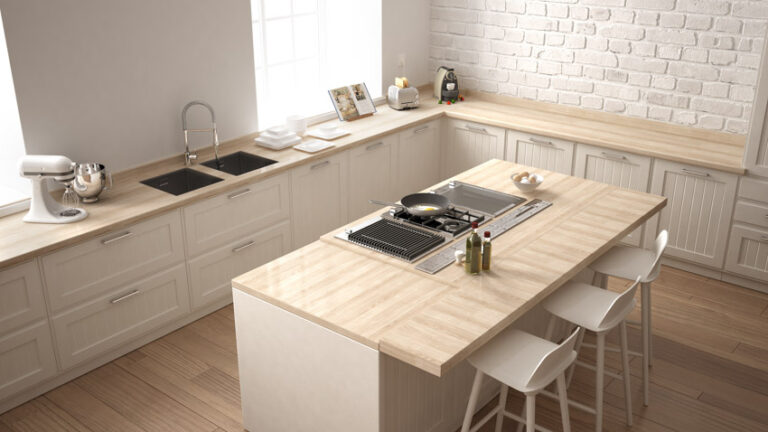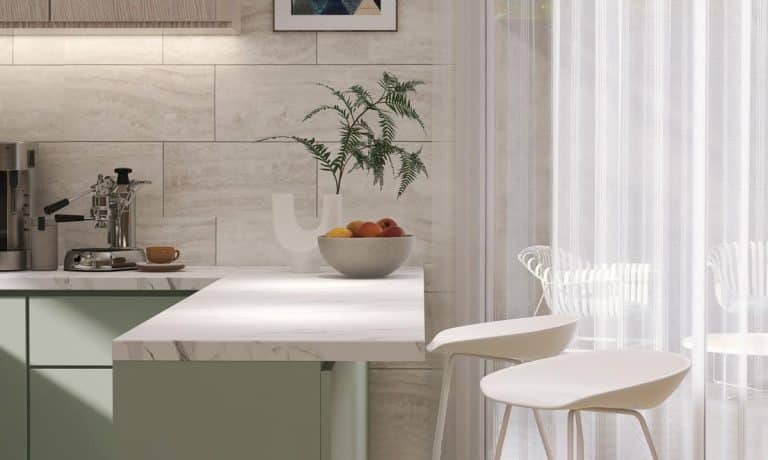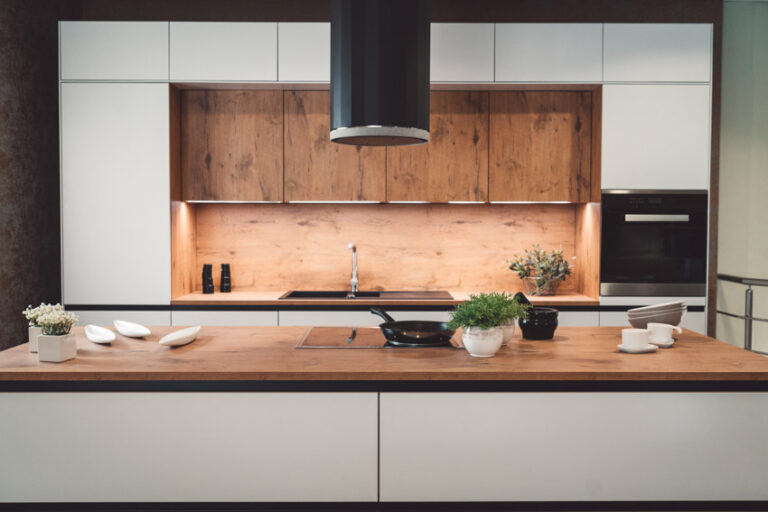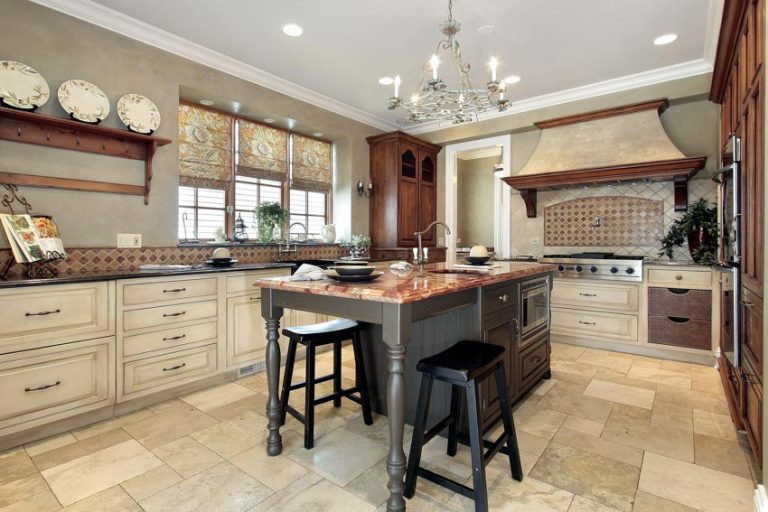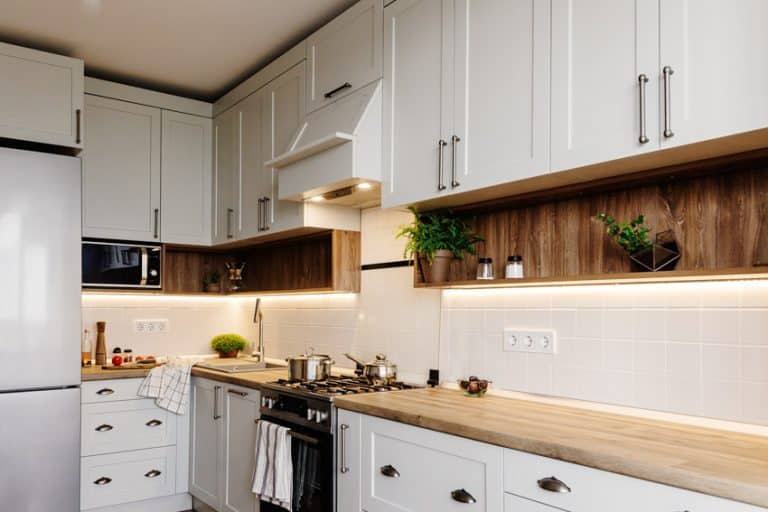Quartz Sinks Pros and Cons
Quartz and other durable materials are often found in modern kitchens and bathrooms. Although commonly used as a countertop material, it’s also an excellent choice for sinks. If you’re considering using quartz for your kitchen or bathroom sinks, there are certain pros and cons that you should be familiar with.
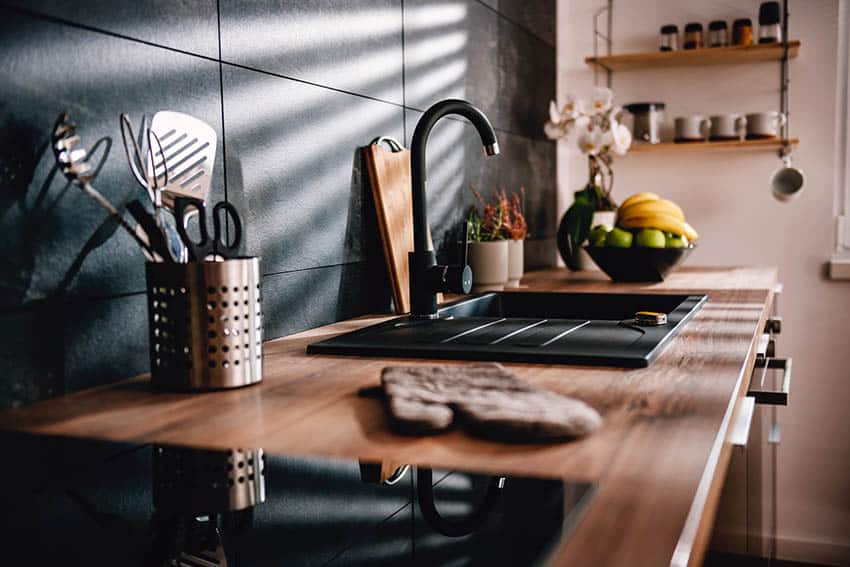
Quartz is very durable and long-lasting. It’s a smooth, nonporous material made from several minerals, giving it the look of an exquisite stone. However, unlike other stone options, it is flexible due to its composition, making for an excellent sink design.
What Is A Quartz Material Sink?
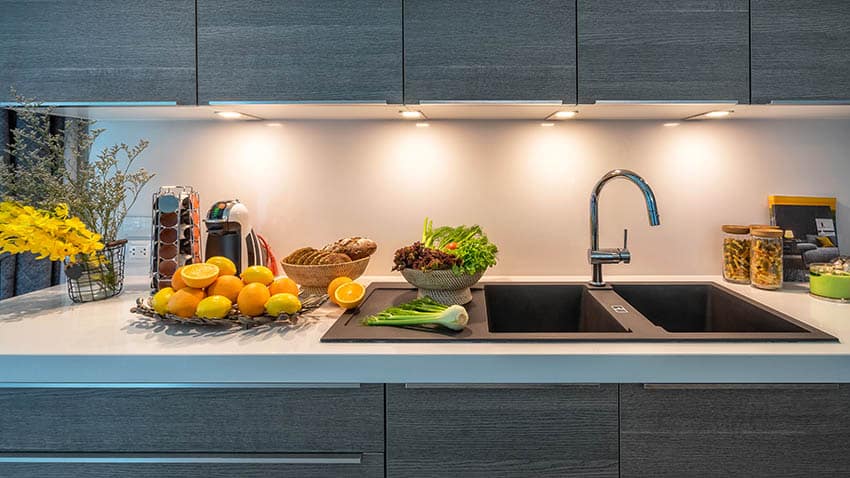
Quartz is a composite material made by grounding and mixing the stone with resin that can be tinted to create custom colors. It is made with 80% natural stone and 20% acrylic resin.
The stone forms naturally after years of pressure and heat bearing down on quartz crystals and sandstone. In its solid state, it is a very dense stone that’s crushed and then mixed with acrylic resin, making a natural-looking surface that’s long-lasting and affordable.
Even though it is somewhat pliable, it’s also a formidable surface making it a risk for glass and ceramic breakage. Dark sinks tend to show more visible signs of wear and tear. Still, it is an affordable and beautiful option for sinks in your home.
Quartz Engineered Sinks Pros and Cons
There are several benefits and a few drawbacks to using these engineered stone sinks in your bathroom and kitchen sinks. We’ll start by describing the advantages:
Pros:
Sanitary – It has a nonporous surface that does not allow bacteria, mold, algae, or mildew to become lodged in surface cracks or tiny openings. The sanitary properties of quartz make it a perfect choice for sinks, especially bathroom sinks.
They also prevent food particles from becoming trapped on the surface, making them ideal for use in the kitchen. The engineered stone surface is also easy to clean due to its smooth, hard surface.
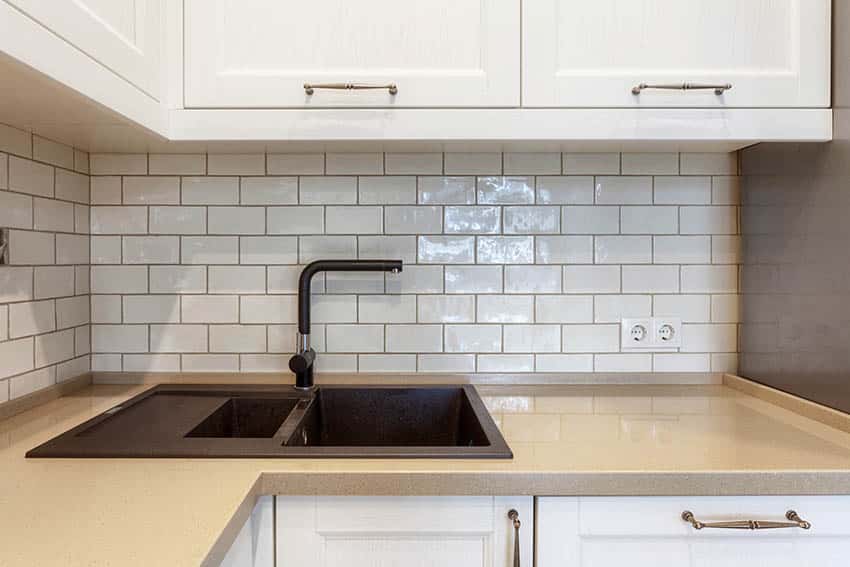
Durable and long-lasting – The strong composition of the material makes for a durable and break-resistant material for sinks in your home. It is stain- and scratch-resistant and can handle temperatures as high as 535°F.
Soundproofing – Compared to stainless steel basins that are prone to loud clangs and bangs when washing kitchen utensils and cookware, this material has natural soundproofing and absorbs noise excellently.
Available in various colors – These sinks are available in several non-fading colors. The resin mixed with ground quartz crystals is tinted to enhance the color and complement other kitchen or bathroom fixtures such as countertops and shower tiles.
Affordable – It’s an excellent inexpensive material while still providing a high-quality look and feel.
Cons
Synthetic and manmade – Quartz is a manmade composite material, unlike solid natural quartzite, which is much more expensive and not as pliable. This limits the variations found in naturally occurring stones.
Causes breakage – Items made of glass, crystal, and fine china are more inclined to break or shatter with these kitchen or bathroom basins, as opposed to other types of sinks like stainless steel.
Quartz vs. Fireclay Sink
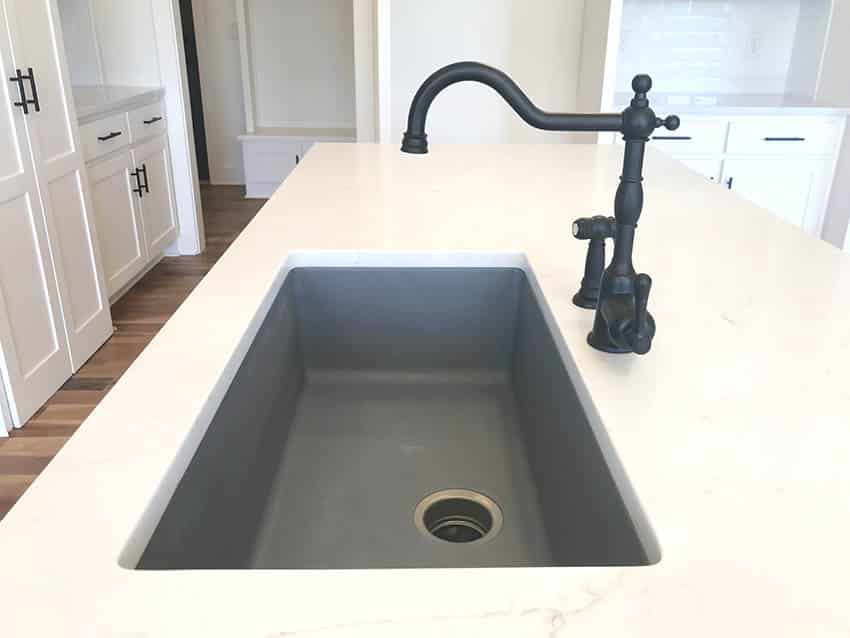
While quartz presents more benefits than drawbacks, another option that you can consider is fireclay. Fireclay is considered a ceramic material that is molded at extreme temperatures.
Ceramic clay and minerals used for a fireclay sink material are naturally resistant to higher temperatures. Due to its nonporous surface, a fireclay sink is also known for being sanitary and long-lasting. However, fireclay is made of a much heavier material compared to the other. It requires additional materials to hold and support it.
Fireclay products also undergo an extensive manufacturing process. As a result, they tend to be very expensive too compared to the alternative. Moreover, fireclay basins are generally deeper. Glass materials then are also more prone to break with this type if you’re not careful.
Quartz vs. Granite Sink
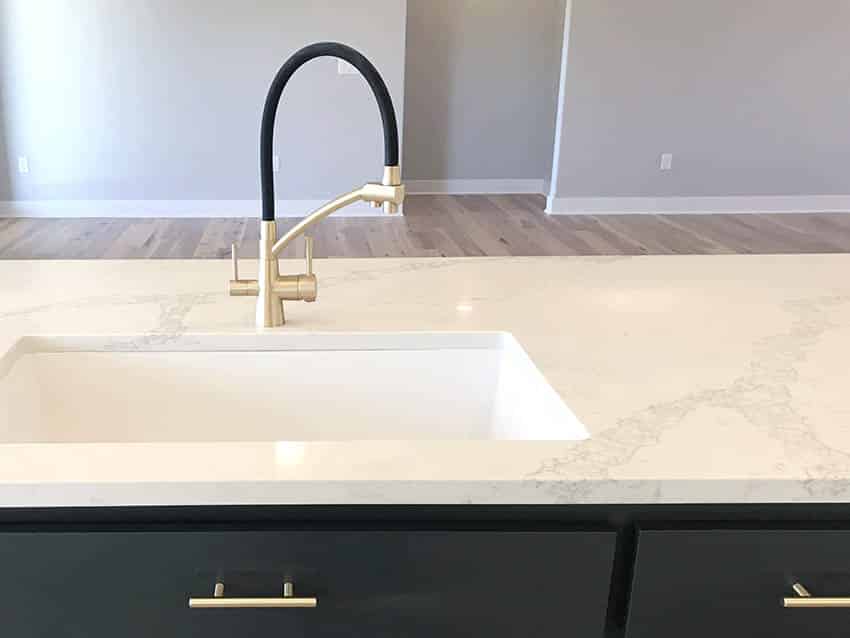
Granite is another popular sink material that is made of an even tougher material than quartz. Granite is also a composite material made from dense rock particles subjected to high pressure and then mixed with resin to form granite composite sinks.
Granite is more resistant to scratches, dents, and chips. However, it shares the sanitary benefits of the latter. See more granite countertops ideas here.
Granite sinks are available in varying colors that are similar. However, due to the granite manufacturing process, the colors are closer to being solid rather than having patterns.
Many homeowners prefer the design of quartz, with patterns that seemingly imitate the look of a genuine stone. Meanwhile, both materials can also handle temperatures up to 535°F. Still, granite costs tend to cost more than the other, but the difference is almost nil.
How To Clean a Sink Made of Quartz
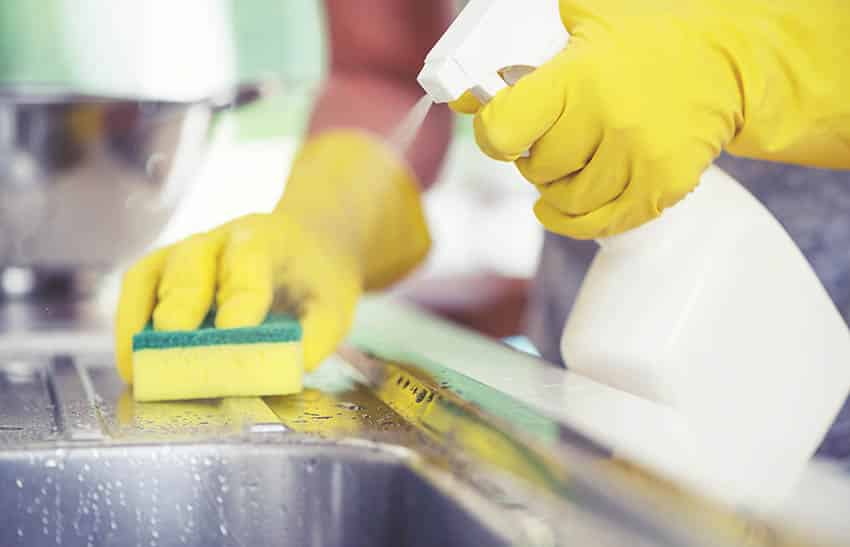
Rinse and remove any standing water, food particles, or soap daily. Regular cleaning is necessary to prevent mineral deposits that may alter the appearance and color of the surface over time.
Always use mild, non-abrasive cleaners. If food or other elements are stuck on the surface, use a mild non-abrasive cleaner and rinse well. Dry the sink after cleaning to prevent stains from forming.
Do not use abrasive pads or steel wool to clean its surfaces. Instead, if there are stubborn stains, use a sponge soaked with a solution of 50% white vinegar and 50% water.
Towel dry when done cleaning. For these surfaces, it’s a good practice not to leave dirty dishes, coffee grounds, or foods that may stain to avoid any damage to the sink’s finish.
Are Sinks Made From Quartz Worth It?
Quartz is a relatively durable and affordable material for sinks in your home. They require little maintenance and withstand daily wear and tear. They are long-lasting and add an elegant and stunning look to your kitchens and bathrooms.
Compared to other materials, the engineered stone provides the most flexible, budget-friendly, and versatile option to incorporate into your living space.
For more related content about the pros and cons of quartz sinks, check out our guide to the pros and cons of copper sink.

